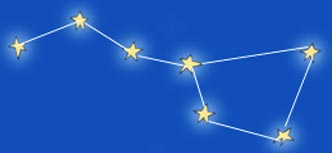Not Just for Kids
Secrets of the Underground Railroad
by Martha Blume
February is Black History month, four weeks set aside to remember the struggles of slavery and the civil rights movement, and to honor those who embraced freedom and justice for people of all colors. One piece of black history that unfolded here in Bay Country was the Underground Railroad.
In 1818, Frederick Douglass was born a slave on the shores of the Chesapeake Bay near Easton, Maryland. Harriet Tubman was born a slave about 1820 in Dorchester. Caroline Hammond was born in slavery in Davidsonville in 1844. These slaves and hundreds more escaped a cruel life on plantations and estates around the Chesapeake by means of the Underground Railroad, a secret, hidden pathway to freedom in the days before the Civil War abolished slavery.
What was the Railroad? It was not a train track, though it took its name in a time when passengers began traveling on trains across the country in the 1830s. And not underground, but secret, hidden, in the dark. A series of code words marked safe houses and people who could be trusted to help along the way. “Stations” were safe places to stay and “stationmasters” those who worked them. “Conductors” or “engineers” led slaves along the right paths, rivers and roads to freedom. The slaves themselves were called “cargo,” “passengers” or “goods.” What risk faced these escaping slaves and those who helped them? Capture, punishment or death.
Two lines led slaves out of slavery in Maryland. One line stretched up the Eastern Shore into Delaware, a free state. The other was the Chesapeake itself, which carried slaves to freedom on board boats sailing north. Harriet Tubman escaped to Philadelphia and on to Canada, then came back time and time again as a conductor in the railroad, leading some 300 slaves to freedom.
Conductors like Tubman used codes to direct the cargo to safety.
Perhaps the best-known code was to follow the “drinking gourd” — the big dipper, the constellation which hung in the sky and pointed the way north. Slaves also used spirituals, songs that spoke of going to the Promised Land, which meant freedom. Often the words gave clues as to when to travel and what lay ahead.
"When the sun come back and the first quail calls …” meant to leave when the winter was ending but rivers were still frozen over. Other signs were sewn into quilts and hung on porches of safe houses. The Drunkard’s Path pattern, a series of jagged fabric sewn into the quilt, told the slaves to travel in a zigzag pattern to confuse those who might be following them.
Now try this:
Pretend you are a conductor on the Underground Railroad. You have to lead a group of slaves to freedom by means of signs and songs and symbols — but no words that the slaves’ white owners could read and understand. Can you use everyday objects, the way the conductors used quilts, constellations and songs, to make a path that a friend could “read” and follow but your parents can’t?
Reading on the Railroad
Books are a railroad you can travel back in time. Read the story of how slaves followed Harriet Tubman’s railroad to freedom, using songs and signs in Jeannette Winter’s 1988 book Follow the Drinking Gourd.
In Deborah Hopkinson’s 1995 Sweet Clara and the Freedom Quilt, slave girl Clara pieces together a map-quilt showing the way to freedom.
This Week’s Kids’ Events
February 21
Story Tellers
All ages walk a short nature hike. Afterwards, relax by the fire, make a craft and listen to a tale while sipping hot chocolate. 10am-noon @ Jug Bay Wetlands Sanctuary, Wrighton Rd., Lothian. $1.50; rsvp: 410/741-9330 • www.jugbay.org.
February 22
Seeds, Leaves and Spring
Can spring be very far away? Kids w/families join a naturalist to gather natural materials and create potpourri. 10am @ Battle Creek Cypress Swamp, Gray’s Rd. off Sixes Rd., Prince Frederick. $3 with discounts; rsvp: 410/535-5327.
Tending the Lighthouse
Kids ages 5-8 visit the Hooper Strait Lighthouse and learn about the life of a Bay keeper. Also, tell nautical time and keep a journal log. 10am-noon @ Chesapeake Maritime Museum, St. Michaels Rd., St. Michaels. $12 w/member discount; rsvp: 410/745-2916 • [email protected].
Junior Paleontologists!
Kids 8-12 clean, identify, and store fossils from a block of fossiliferous clay. 1-3:30pm @ Calvert Marine Museum, off Rt. 2, Solomons. $8 w/member discount; rsvp: 410-326-2042 x 45 • [email protected]
• www.calvertmarinemuseum.com.
The Beat Goes On
Kids of all ages create your own drum or bring your own drum. Make spontaneous rhythms w/a group. 2-3pm @ Chesapeake Children’s Museum, Silopanna Rd., Annapolis. free w/museum admission: 410/990-1993.
February 23
Day of the Dinosaur
Kids 4+ w/parent walk in prehistoric Maryland’s shoes. Discover the fossils of ancient creatures in the area, watch videos and make a dino craft. 1-4pm @ Watkins Nature Center, Watkins Park Dr., Upper Marlboro. $4 w/age discount; rsvp: 301/218-6702.
February 25
Happy Birthday Dr. Seuss
Kids of all ages celebrate Dr. Seuss’ birthday w/Green Eggs and Ham. Pick up a Cat in the Hat ‘I Love Reading’ button. 10am @ Barnes and Noble, Harbour Center, Solomon’s Island Rd. Annapolis: 410/573-1115.
February 26
Festival en Columbia
Kids ages 5-10 make crafts and learn to folk dance as the kids of Columbia (South America) would do. Watch a puppet show spoken in Spanish. 3:30-5pm @ Chesapeake Children’s Museum, Silopanna Rd., Annapolis. $6 per child w/member discount: 410/990-1993.

